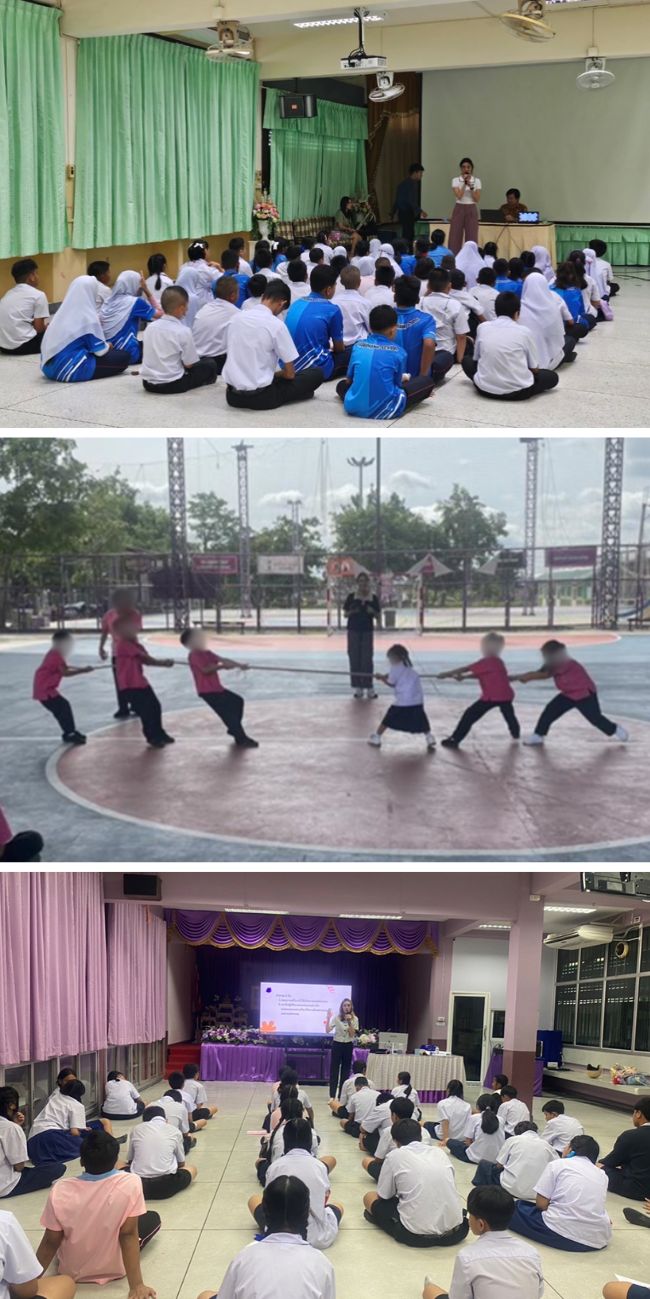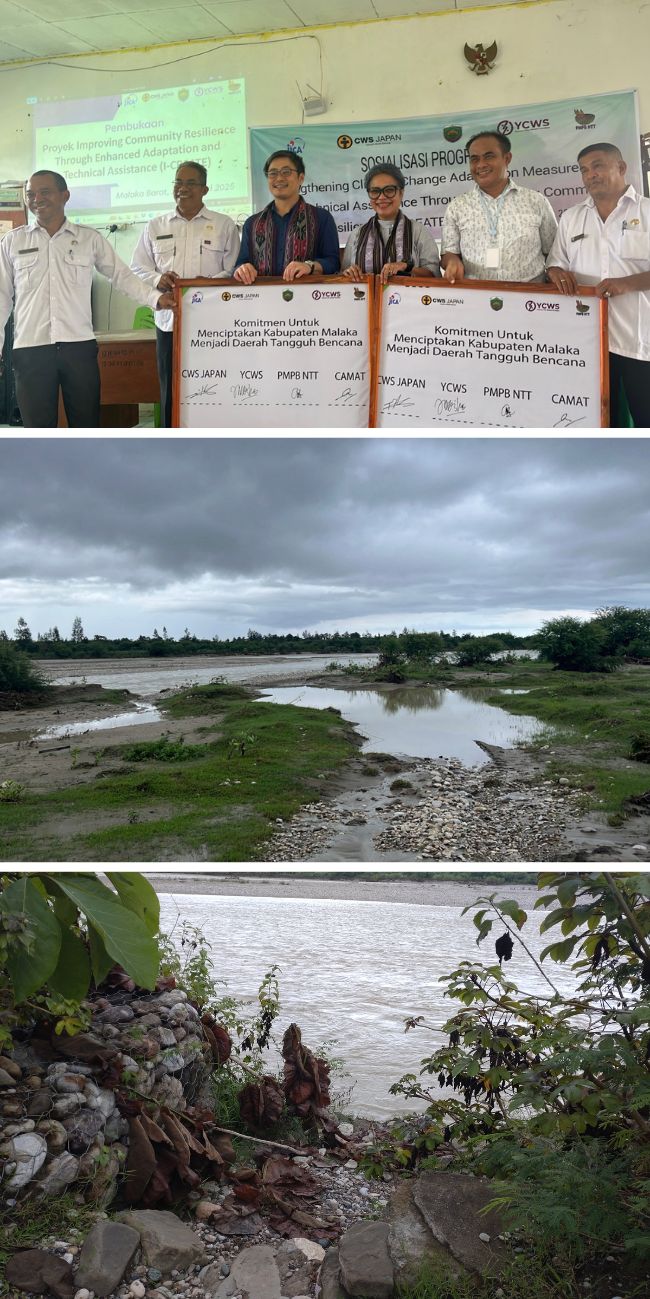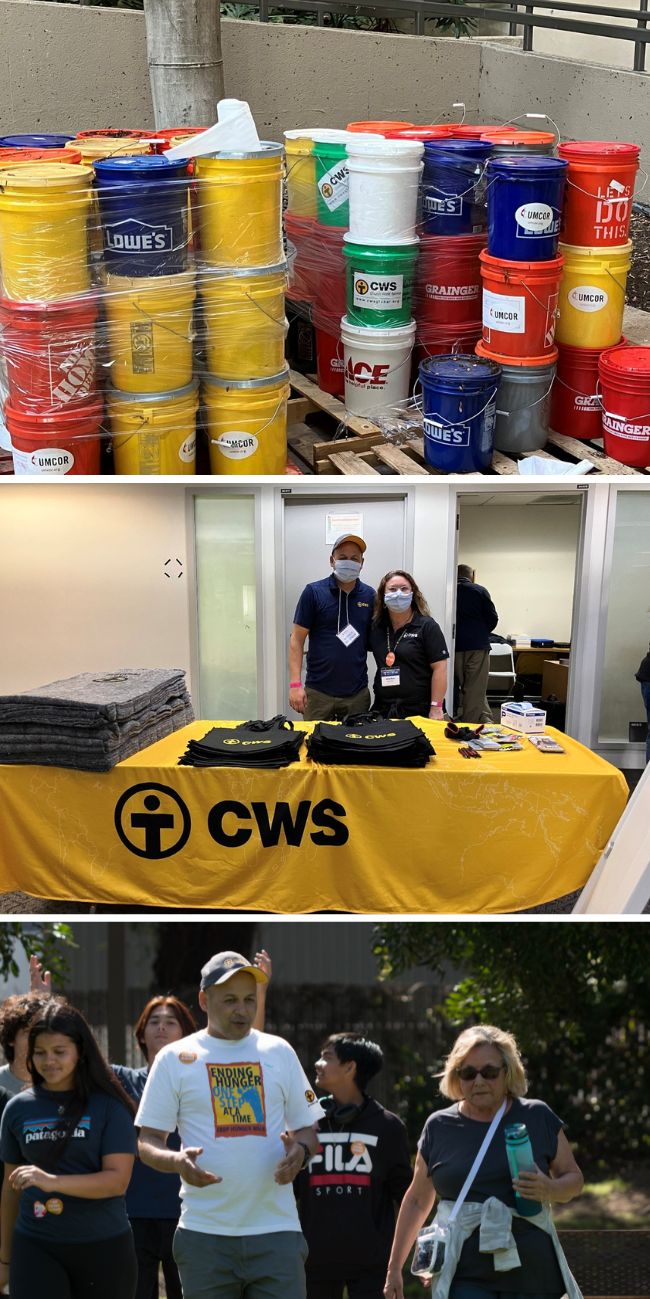Wajdi Al-Mowafak, CWS’ Director of Finance Business Partners, was on the verge of reuniting with his parents in the United States when President Trump’s executive order indefinitely suspending refugee admissions upended their plans. Now, like thousands of others, his family is trapped in limbo, facing uncertainty as their dreams of safety and stability vanish overnight. On January 20, 2025, President …
Stories of Change

Top: Glow and Grown project; Middle: Colorful Minds project; Bottom: RISE project
Nurturing Safe and Inclusive Schools: The Impact of CWS Child Protection Programs
For years, CWS Thailand has been at the forefront of child protection, implementing programs designed to foster inclusive, safe and supportive learning environments. Through initiatives at three schools—Wat Sao Thonghin School, Radburana School and Chumchonmoobanpattana School—CWS has empowered students with essential life skills, emotional resilience and social awareness. Each program is uniquely tailored to address the needs of children from diverse backgrounds, supporting their overall well-being and long-term development.
Colorful Minds: Encouraging Self-Esteem and Empathy
The 10-week Colorful Minds program at Wat Sao Thonghin School empowered 174 primary students by boosting self-esteem, reducing bullying and fostering an inclusive environment. Through engaging activities like icebreakers, emotional regulation exercises, teamwork challenges and cultural appreciation lessons, students developed stronger social and emotional skills.
Creative outlets such as drawing and role-playing helped them express emotions, build empathy, and collaborate more effectively. While younger students initially found some concepts like diversity challenging, program adjustments ensured their engagement and learning. Many participants expressed a keen interest in continuing, with feedback highlighting improved emotional awareness and stronger peer relationships.
Glow and Grown: Fostering Inclusivity and Cultural Understanding
In partnership with the Bangkok Refugee Center, 60 primary school students took part in a four-day Glow and Grown project focused on fostering a safe and inclusive learning environment.
Through team-based games, group discussions and interactive exercises, students developed empathy, cultural awareness and positive social skills. Their active participation led to meaningful connections and improved interpersonal interactions. By the end of the program, bullying incidents had decreased and many students expressed enthusiasm for future sessions.
RISE: Supporting At-Risk Youth for a Brighter Future
Currently underway at Chumchonmoobanpattana School, the RISE initiative supports approximately 240 junior school students facing socio-economic challenges, including poverty and disengagement from education, which often contribute to long-term challenges, making early intervention essential to their well-being and future success.
Through a structured curriculum focused on emotional regulation, self-awareness and social responsibility, RISE provides a safe and supportive environment where students can build resilience and leadership skills. While working with vulnerable youth presents challenges, fostering a positive school culture creates a ripple effect that benefits not just the students, but also their families and communities.
A Commitment to Child Protection and Youth Development
CWS remains dedicated to enhancing child protection and youth development through targeted educational programs. By equipping students with essential life skills, fostering resilience and creating inclusive learning environments, these initiatives lay the foundation for brighter futures. Looking ahead, CWS aims to expand these programs to reach more at-risk youth, further strengthening community support systems and ensuring that every child has the opportunity to thrive.
Learn more about CWS Thailand here.


